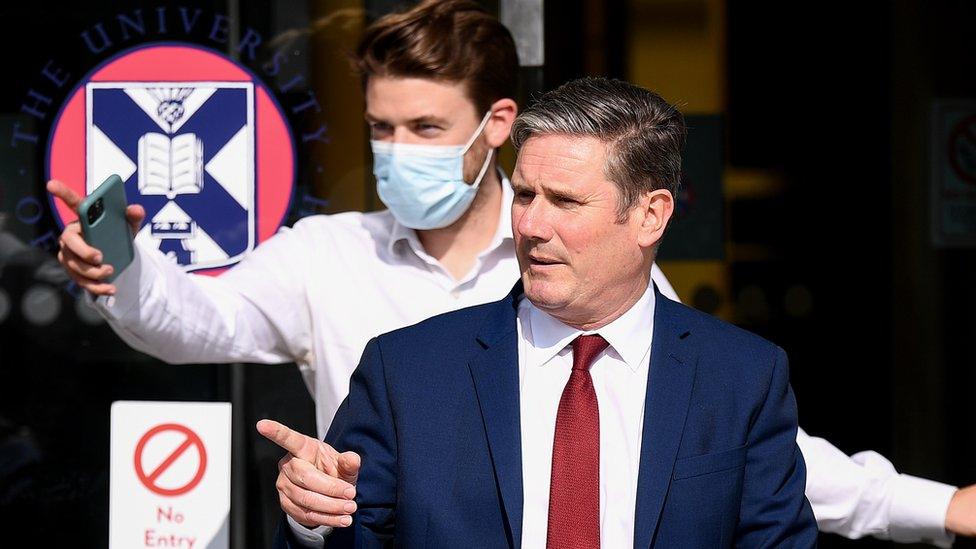'Status quo isn't working' for Scotland, says Starmer
- Published

Sir Keir Starmer has said the "status quo isn't working" for Scotland but has again rejected calls for a second independence referendum.
The Labour leader, who backs devolving more powers from Westminster, claimed another vote would be "divisive".
However, he said he did not agree with Boris Johnson's assessment that there should not be another referendum for at least 40 years.
The SNP said a vote would allow Scots to choose how to rebuild after Covid.
Last year Sir Keir said he would set up a constitutional commission to offer a "positive alternative to the Scottish people".
He told BBC One's Andrew Marr Show: "I don't think there should be another referendum, I don't think a further divisive referendum is the way forward.
"But I do accept that the status quo isn't working. I don't accept the argument that the status quo isn't working, the next thing you do is go to a referendum.
"I think there are other things you can do, other arguments that can be made in support of the United Kingdom."
Asked about Boris Johnson's 40-year position, Sir Keir replied: "I heard the prime minister say that and I don't agree with him on that."
Speaking on BBC Politics Scotland, Deputy First minister John Swinney rejected suggestions that the recovery from the Covid crisis should be a greater priority than another independence vote.
He said: "An independence referendum is an essential priority of the people of Scotland because it gives us the opportunity to choose how we rebuild as a country from Covid.
"It would give us the opportunity to decide on our constitutional future and to determine the nature of our economy and how we deal with and support our citizens."
Earlier this month Prime Minister Boris Johnson told the BBC he thought the 41-year interval between the UK's referendums on joining the EU and leaving it was a "good sort of gap".
Mr Johnson said in his experience, such votes "don't have a notably unifying force in the national mood, they should be only once in a generation".
Related topics
- Published21 December 2020

- Published24 October 2020

- Published3 January 2021
